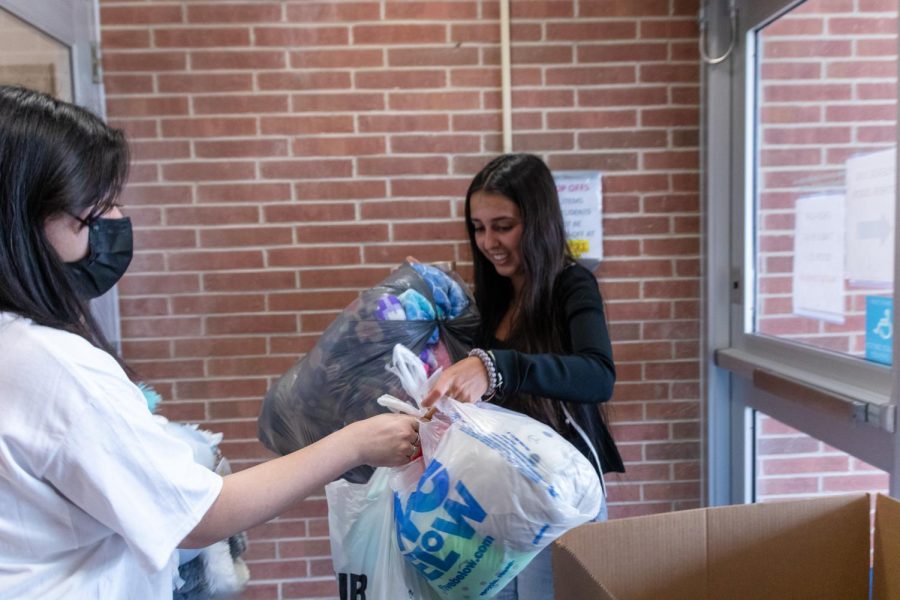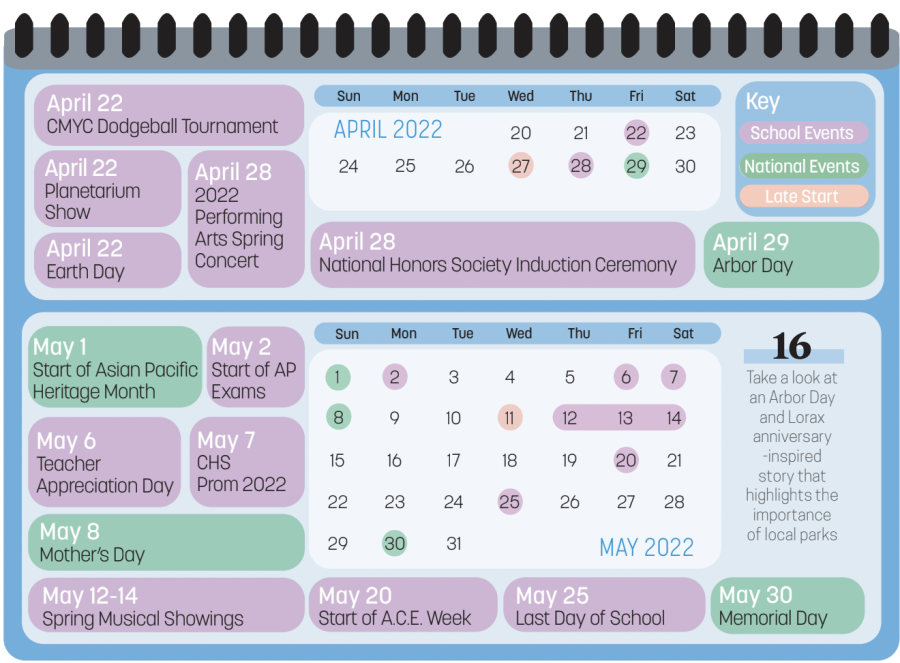This summer, the right to bear arms came under public scrutiny and incited a nasty debate across partisan lines. Considering the horror of the Aurora theater massacre, it’s certainly an important debate to be had. Amid the hubbub over the Second Amendment, however, I thought more about the First Amendment—specifically, the fact that students know very little about the amendment’s pertinence during school.
This became clear to me while I was attending a program for aspiring journalists in June. One of the final speakers at the program was Mark Goodman, a professor at Kent State and former president of the Scholastic Press Law Center, a national legal organization that supports high school and college journalists. A skilled orator, he dazzled the audience with information ranging from copyright to various press rights court cases. It surprised me that he could keep us engaged despite a seemingly dull topic, but it surprised me more that my fellow audience members didn’t know anything about that topic.
These were dedicated high school journalists- the foremost reporters, editors and photographers from across the nation, each exercising his or her First Amendment rights by publishing a newspaper. They had no idea about press rights, much less student rights in general. If these “experts” had such meager knowledge of student rights, then how much would average students know?
Maybe I shouldn’t have been so taken aback, though. No classes in Indiana’s education system explicitly teach students about their scholastic rights except for journalism courses. I was only enlightened with the knowledge of my freedoms when I took Newspaper 1 as a freshman.
I’m assuming the average reader will benefit from a quick overview, then. The first landmark case you should know is called Tinker v. Des Moines. In December of 1965, John Tinker, Mary Beth Tinker and Christopher Eckhardt wore black armbands emblazoned with peace signs to school in protest of the U.S. government’s policies in the Vietnam War. The school board in Des Moines had enacted a regulation two days before to ban such armbands, so administrators suspended the students from school when they refused to remove them.
The dissenting students’ fathers filed a complaint, which worked its way all the way to the Supreme Court in late 1968. The Court held that the Tinkers and Eckhardt had expressed themselves passively and without disrupting the school. Their actions were constitutional. The case set the precedent that teachers’ and students’ First Amendment protections don’t stop at the schoolhouse door.
Tinker protected the expression of opinions, no matter the nature of those opinions. If it sounds too good to be true, that’s because it is. The caveat was that these expressions couldn’t be “disruptive.”
The decision was sharpened by Bethel School District v. Fraser, which involved a student who made a speech filled with sexual innuendos. Justices decided the school district’s suspension of the student was constitutional, thus permitting schools to punish a student for expressing himself indecently or suggestively.
In 2007 Tinker was again modified by Morse v. Frederick. A student in Juneau held up a nonsensical sign reading “Bong Hits 4 Jesus” during the 2002 Olympic Torch Relay, and he contested the resulting suspension.
The Supreme Court decided the student’s actions were not protected by the First Amendment because it allegedly promoted illegal drug use in a school environment. For example, a student couldn’t constitutionally wear a shirt promoting alcohol consumption to school. Interestingly, however, a student could legally wear a shirt advocating lowering the age limit for drinking.
Tinker and its modifications are just the tip of the iceberg. Cases branch out addressing each aspect of the First Amendment in high schools and colleges, especially in relation to freedom of the press.
But why should you care about your rights? The Tinker case shields students’ ability to express opinions. It ensures that religion won’t be regulated by public schools. Students enjoy a remarkable degree of free speech today under the case’s precedent. Still, for better or worse, there are limitations to the First Amendment when you enter the school doors. By recognizing the scholastic freedoms you have and don’t have, you can plan the manner in which you express opinions in school. You can also avoid disciplinary actions stemming from misunderstanding your rights.
While the administration here is relatively understanding and tolerant of student expression, many schools nationwide don’t enjoy the same privileges. The Student Press Law Center maintains a newsfeed of the latest clashes between school administrators and expressive students on splc.org.
Situations arise nationwide over different interpretations of what constitutes disruption, according to Tinker. In June, the principal of Port Angeles High School in Washington attempted to stop distribution of the newspaper because the word “gay” was present in a word search by coincidence. Apparently he felt the buried word could offend readers and disrupt the school’s learning environment.
I question how many of the school’s students were aware of their principal’s actions and proactively fought the decision. Probably very few.
It’s unlikely such blatant violations of the First Amendment would be a problem here, but students should nevertheless be knowledgeable of their rights within the school building. In doing so, students will know and can act if they are being cheated of constitutional liberties during high school or college.































![British royalty are American celebrities [opinion]](https://hilite.org/wp-content/uploads/2024/03/Screenshot-2024-03-24-1.44.57-PM.png)




















![Review: Quiet on Set: The Dark Side of Kids TV is the long awaited exposé of pedophilia within the children’s entertainment industry [MUSE]](https://hilite.org/wp-content/uploads/2024/04/unnamed.jpg)
![Review: “The Iron Claw” cannot get enough praise [MUSE]](https://hilite.org/wp-content/uploads/2024/04/unnamed.png)
![Review: “The Bear” sets an unbelievably high bar for future comedy shows [MUSE]](https://hilite.org/wp-content/uploads/2024/03/unnamed.png)
![Review: “Mysterious Lotus Casebook” is an amazing historical Chinese drama [MUSE]](https://hilite.org/wp-content/uploads/2024/03/0.webp)
![Thea Bendaly on her Instagram-run crochet shop [Biz Buzz]](https://hilite.org/wp-content/uploads/2024/03/IMG_0165-1200x838.jpg)
![Review in Print: Maripaz Villar brings a delightfully unique style to the world of WEBTOON [MUSE]](https://hilite.org/wp-content/uploads/2023/12/maripazcover-1200x960.jpg)
![Review: “The Sword of Kaigen” is a masterpiece [MUSE]](https://hilite.org/wp-content/uploads/2023/11/Screenshot-2023-11-26-201051.png)
![Review: Gateron Oil Kings, great linear switches, okay price [MUSE]](https://hilite.org/wp-content/uploads/2023/11/Screenshot-2023-11-26-200553.png)
![Review: “A Haunting in Venice” is a significant improvement from other Agatha Christie adaptations [MUSE]](https://hilite.org/wp-content/uploads/2023/11/e7ee2938a6d422669771bce6d8088521.jpg)
![Review: A Thanksgiving story from elementary school, still just as interesting [MUSE]](https://hilite.org/wp-content/uploads/2023/11/Screenshot-2023-11-26-195514-987x1200.png)
![Review: When I Fly Towards You, cute, uplifting youth drama [MUSE]](https://hilite.org/wp-content/uploads/2023/09/When-I-Fly-Towards-You-Chinese-drama.png)
![Postcards from Muse: Hawaii Travel Diary [MUSE]](https://hilite.org/wp-content/uploads/2023/09/My-project-1-1200x1200.jpg)
![Review: Ladybug & Cat Noir: The Movie, departure from original show [MUSE]](https://hilite.org/wp-content/uploads/2023/09/Ladybug__Cat_Noir_-_The_Movie_poster.jpg)
![Review in Print: Hidden Love is the cute, uplifting drama everyone needs [MUSE]](https://hilite.org/wp-content/uploads/2023/09/hiddenlovecover-e1693597208225-1030x1200.png)
![Review in Print: Heartstopper is the heartwarming queer romance we all need [MUSE]](https://hilite.org/wp-content/uploads/2023/08/museheartstoppercover-1200x654.png)























![Review: Ladybug & Cat Noir: The Movie, departure from original show [MUSE]](https://hilite.org/wp-content/uploads/2023/09/Ladybug__Cat_Noir_-_The_Movie_poster-221x300.jpg)

![Review: Next in Fashion season two survives changes, becomes a valuable pop culture artifact [MUSE]](https://hilite.org/wp-content/uploads/2023/03/Screen-Shot-2023-03-09-at-11.05.05-AM-300x214.png)
![Review: Is The Stormlight Archive worth it? [MUSE]](https://hilite.org/wp-content/uploads/2023/10/unnamed-1-184x300.png)





